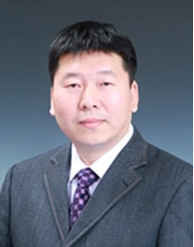



Automation as the Symbol of Human Civilization
"Automation" refers to the use of machines to partially or completely replace physical or mental work from humans, or even to complete tasks that human beings cannot directly complete with their own physical strength and mental power. The application of automation technology can greatly improve production efficiency and product quality, and reduce labor intensity and the consumption of raw materials and energies. It can also provide unprecedented social and economic benefits. Automation technology also makes human space exploration possible, and has triggered a great revolution in the science and technology of national defense. Many important achievements in modern society, such as robots, spaceships, high-speed trains, nuclear power plants, etc., have been rooted in automated systems. From the perspective of the development of automation, the process of progress and development of human society is the process of a continuous pursuit of automation. It can also be considered as a symbol of the progress of human civilization and modernization.
Automation science and technology is a comprehensive and new discipline. The main objects of its research are various systems in the fields of industry, agriculture, transportation, commerce, national defense and society. It involves control theory and engineering, pattern recognition and intelligent systems, systems engineering, detection technology and automation devices, navigation guidance and control, bioinformatics, industrial intelligence and systems, brain and cognitive science, etc., and it has broad prospects for development. Combined with the application domains, automation can evolve into specialized technologies, such as automation of chemical processes, power systems and mechanisms, etc. The development of information science (such as computer science and electronic communication science) has also promoted the development of automation science.
The Department of Automation at Tsinghua University nurtures professionals engaged in the research of automation science and technology, and has the authority to confer bachelor’s degrees, master’s degrees (including Master of Engineering, Master of Science, and Master of Engineering Management) and PhDs (Doctor of Philosophy in Engineering and Doctor of Engineering). In the national evaluation of first-level disciplines organized by the Ministry of Education in 2012, the Control Science and Engineering discipline of the Department of Automation was ranked first in China in terms of faculties, scientific research, talent cultivation and academic reputation. In the fourth round of national first-level discipline evaluation in 2016, the Department was rated as A+, the highest attainable level of its kind in China. The Department of Automation is also the supportive unit of the Education Steering Committee for Automation Specialty of Higher Education of the Ministry of Education and the Education Working Committee of the Chinese Association of Automation.
Today, automation is embracing new opportunities by integrating unmanned systems with intelligent technologies,and new advancements in automation technologies have consistently emerged. People eagerly anticipate the integration of intelligent robots into our daily lives, intelligent manufacturing systems that enhance production efficiency, and smart healthcare solutions that improve our well-being. In the future, automation will revolve around core research in intelligent system technologies and provide essential support to critical areas of national strategy. I firmly believe that the future of automation holds limitless potential and promises remarkable advancement.
